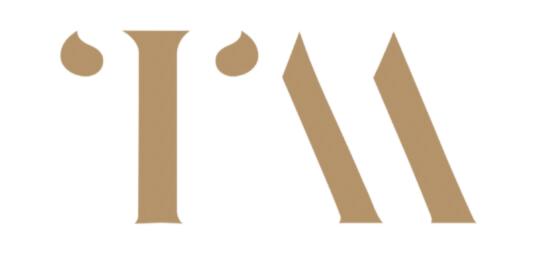
Breaking the Glass Ceiling A rallying call for investing in women
The theme of International Women’s Day 2021 was #choosetochallenge and I chose to reaffirm my commitment to challenging gender bias and inequality and to mobilize capital to forge an inclusive world. Gender equality is a fundamental human right, yet despite progress, women and girls around the world do not fully experience equal rights and their potential as economic, social and sustainable development change-agents remains untapped.
While great strides have been made toward gender equality in the workplace in recent decades, many women continue to find themselves unfairly obstructed from advancing in their careers, often witnessing less qualified and capable male counterparts overtake them at critical milestones in their career. At this point, we say they’ve ‘hit the glass ceiling.’
The “Glass ceiling” is a metaphor for the evident but intangible hierarchical impediment that prevents minorities and women from achieving elevated professional success. It’s a subtle but injurious form of discrimination where you cannot attain the opportunities you see in front of you, despite your qualification, expertise, and your best efforts.
Damning Stats
The statistics pertaining to gender equality globally are damming to say the least. In the US half of the college-educated labour force in the US is made up of women and while women outnumber men in American colleges, they still only hold 25% of leadership roles.
While the evidence shows that companies led by diverse management teams leverage a range of perspectives to better compete in a global economy, many companies still consider placing women in senior positions as a riskier option, with higher expectations. As at 2019, only 6% of Fortune 500 CEOs were women and “Expectations to achieve great things are even higher for the woman CEO,” says Ruenvadee Suwanmongkol, Secretary-General, Securities and Exchange Commission, Thailand
Finally, the statistics are even worse when one considers the role women play in the capital allocation process. Despite the fact that diverse-owned funds are overrepresented in the top quartile of private equity funds, less than 1.3% of the $69 trillion of global financial assets under management is managed by people of color and women. .
The underlying issues
Research into working women has shone a light on the persistent problems that block women’s careers. In particular, a fundamental difference in societal beliefs and attitudes about what it is to be male vs female has led to persistent inequalities. This is well documented by The Female Lead in their report named the ‘The Unentitled Mindset.’ It highlights the way women have been socially conditioned to feel less entitled than men, in all areas of their lives, which has created a big entitlement gap between women and men.
The toxic internalised bias of a woman’s ‘unentitled mindset’ leads to a lack of confidence at work, especially in negotiating pay increases, asking for flexibility and promotion. The role of females in the workplace has changed over the last few decades but has not yet reached parity. There is still a bias in many institutional policies and practices because they were originally designed for, and by, males. The Female Lead research gives insight into the fact that women often feel they should expect less, not take up too much space, and not demand more, even when they deserve it. This ‘entitlement gap’ rears its ugly head in many places, reflected by big differences in pay rises, domestic chores, childcare, parental care and unpaid work that mainly falls on women’s shoulders.
“Women have been socially conditioned to feel less entitled than men in all areas of their lives and this has created a big entitlement gap between men and women. So our new mission at The Female lead is to Close The #EntitlementGap” Edinwa Dunn, Founder of The Female Lead
I have witnessed first-hand how women have been at the front lines of the COVID-19 pandemic as health care workers, caregivers, innovators, and as some of the most exemplary and influential leaders in combating the pandemic. In my opinion, it is no coincidence that the countries most successful in stemming the tide of the COVID-19 pandemic and responding to its health and broader socio-economic impacts have women at the forefront. This is despite the fact that the World Economic Forum highlighted that the COVID-19 crisis was likely to affect more women than men.
Furthermore, in addition to persistent pre-existing social and systemic barriers to women’s participation and leadership, new barriers have emerged in the form of increased domestic violence, unpaid care duties, unemployment, and poverty.
My Journey
Throughout my career, I have often found myself in male-dominated environments, more often than not, the only female in the room with few natural allies. At various points in my journey, I have had to contend with numerous forms of discrimination, I have fought to have my voice heard or to be allowed in the room, let alone at the table. I have also at times fallen victim to the entitlement gap, succumbing to the pressure from the organization to expect and demand less despite clearly deserving more.
What has kept me going over the years is a deep sense of purpose, an unrelenting tenacity, and an unwavering belief in myself, especially in the face of being underestimated or told no. I have made it thus far driven by sheer will, determination and doggedness with a lot of personal sacrifice in the process. I want to create a path that makes it easier for my daughters in the future.
The benefits of gender equity
The benefits of gender equity are well documented. “Having a diverse workforce is not only the right thing to do, it’s a business imperative. You will lose the war for talent and business if this isn’t a top priority.” says Stephanie Cohen, Chief Strategy Officer, Goldman Sachs (Source: Oliver Wyman’s annual report on ‘WOMEN IN FINANCIAL SERVICES 2020’)
According to Oliver Wyman’s report, ‘there is at least a $700 billion revenue opportunity from better serving women as customers.
In recognition of the business case, $10 Billion in Investment Capital and $100 Million in Philanthropic Capital To Impact The Lives of One Million Black Women. In doing so, Goldman Sachs is seeking to address the dual disproportionate gender and racial biases that have plagued black women, which have only been exacerbated by the covid pandemic. The GS research estimates that reducing the earnings gap for Black women could create up to 1.7 million jobs and add as much as $450 billion to US GDP annually. In light of this evidence, it is imperative that other organizations follow suit and lend not just their voice but their capital to this cause.
I commend the One Million Black Women initiative and know first-hand the commitment and resources the Firm places behind these initiatives, having contributed to building the 10,000 Women initiative when I was at Goldman Sachs. Going forward, attracting and developing more women in leadership roles requires a change in the underlying culture, the recognition that women are not the problem, women are not less ambitious or skilled. Rather, historic societal expectations, family mental load and opaque corporate systems have made it harder for women to rise to the top. What is required is a fundamental shift in culture and policy to ensure that women are valued when it comes to areas such as pay, progression and work-life balance so they are not forced to forfeit one for the other.
Shaping The Future And Making A Difference
I have made it my life’s work to be a vanguard of change for all women and an exemplary model for my daughters. I strive to build a world where young girls can pursue their dreams with unbridled focus and determination, knowing they are not limited by their gender. . It’s about time we started breaking down that glass ceiling; one fragment at a time.
The world as we knew it, Pre covid-19 is most likely gone forever. It’s time for women world over to align with the new normal and sit ahead of the curve. As horrific as Covid-19 was, it did birth some silver lining for women, in my opinion. With remote work now becoming part of the new world’s normal, more women, especially stay-at-home mums, can get back into the workforce and gradually make steady strides in their career.
Even with this stride, we’re not relenting because we know that without the active participation of women and the incorporation of women’s perspectives at all decision-making levels, we will not achieve true equality, development, or peace.
2021 started on a high for me as Kamala Harris assumed office as the Vice President of the United States of America. I consider it a victory for all women the world over. In her victory speech, the Vice President urged young girls to “Dream with ambition, lead with conviction, and see yourself in a way that others might not see you, simply because they’ve never seen it before.” My message to women everywhere this International Women’s Month is that you are powerful beyond measure, and your voice matters. Do not feel less entitled; expect more, take up more space and demand more, be bold in challenging the status quo. Finally, teach your girls to embrace a world of possibilities, to be proud of their ambition, regardless of their gender, send them a clear message that they can be whoever they chose to be, and applaud them every step of the way.






